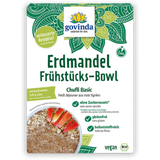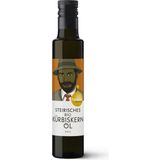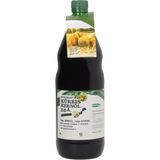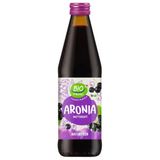20 of the Healthiest Spices in the World: Part 2
After we introduced ten of the healthiest spices from around the world in part 1, here are another ten spices that not only add flavour to our food are also beneficial to our health.
11. Cayenne pepper
Cayenne pepper is used to add fiery spiciness to many savoury dishes. The powdered form has a pungent peppery taste and contains capsaicin, the substance that gives chillies their spiciness.
Cayenne pepper has a cleansing effect on the body and, although spicy, it calms the digestion. It is also often used in detox programs because of its cleansing properties.
12. Liquorice root
Liquorice root adds a good dose of "spiciness" to any dish, but it has a strong flavour that can be overwhelming. Be careful not to use too much or you could mask other, milder flavours.
Liquorice root may be an unfamiliar flavour to many but it is worth g. But it has many advantages once you get used to the taste. The greatest of these is the ability to help calm the mind and body and reduce stress and anxiety.
There's also some evidence that liquorice root can be beneficial to cardiovascular health and can alleviate menopausal problems.
A popular way to use liquorice root is to make tea with it. To do this, you simply boil water with liquorice root and then drink it like any other tea. It's a quick and effective way to calm yourself down and improve your mood when things seem overwhelming.
13. Oregano
There are many varieties of oregano. Some have a bitter taste, while others taste more like mint. The most widely used variety of oregano in Italy is perhaps the most popular and is often used in sauces and pasta dishes.
Oregano is easy to use often because it goes so well with a large number of dishes. The amount of vitamins it contains is pretty impressive and with it comes a large serving of antioxidants.
Oregano also contains minerals, fibre and even omega-3 fatty acids, but to get the most benefit from it, it should be consumed fresh.
You shouldn't rely on a single spice like oregano for all of your antioxidant needs. You will get a fuller range of nutrients by adding oregano to vegetables which have their own vitamins and minerals.
14. Coriander
Fresh coriander finds its way into many salsa recipes and is the reason why they have that signature salsa taste. It's also often used in sauces and as a side dish because it compliments the taste without being overwhelming.
Most cooks use cilantro for its amazing taste and the way it enhances a simple dish. But you can use cilantro not only because it tastes fantastic, but because it has other fantastic properties as well.
Coriander is said to help detoxify the body. It is also said to have a good effect when it comes to relieving nervous tension. So try to use cilantro first before resorting to medicinal remedies to relax and calm down.
15. Lavender
Lavender has a floral taste, which is what one would expect given that it is a flower. It is also described as having a certain sweetness that can become bitter with excessive use.
Not only is lavender a beautiful colour, but this flower should also be on your radar because of its many health benefits. Perhaps you already knew that it has a calming effect and is often used in aromatherapy to relax the mind and change mood. Lavender is also rich in phytonutrients.
If you can't think of ways to add lavender to your dishes, you can also just drink it as tea.
16. Sage
Sage has a bitter, astringent taste and is often used to flavour fillings. It has a distinctive aroma when cooked and its taste can drown out others, so avoid overusing it.
Sage is very similar to rosemary as they both come from the same family of plants. The positive effects, especially due to the high content of antioxidants, are very similar.
Antioxidants are among those substances that are good for the body because they neutralise free radicals. Sage also has anti-inflammatory effects which can provide relief from conditions such as arthritis or other conditions caused by excessive inflammation in the body.
17. Ginger
Ginger can be quite spicy and hot when consumed on its own. But when used in conjunction with other foods in cooking, it usually adds a mild bittersweet taste.
Ginger has grown in popularity over the years and is found in more recipes today than ever before. This is a good thing because ginger is rich in essential oils that have a number of beneficial health effects. Most fascinating of all, ginger appears to be effective in preventing cancer. At least that is what studies suggest. In some cases, certain substances contained in ginger are said to be able to kill cancer cells - but more research is required.
Consider adding fresh ginger to soups and stews, or adding powdered ginger to chicken and fish to add a delicious flavour and take advantage of the health benefits it offers. Always use organic ginger whenever possible to get the full benefits.
18. Cinnamon
Cinnamon tastes like cinnamon, there is nothing like it and no other way to describe it! You often find cinnamon as a component in dishes like cinnamon rolls or applesauce.
Cinnamon is most commonly used in baking and making desserts, but it also has many health benefits.
You can use cinnamon for its antiseptic properties, which help cleanse the body of bacteria, or as a way to improve your cholesterol levels. It has anti-inflammatory properties and is believed to prevent cancer from developing. Cinnamon is also said to help regulate blood sugar levels and boost metabolism.
There are two types of cinnamon: the more common cassia cinnamon and the rarer and more expensive Ceylon cinnamon. Since cassia cinnamon contains a relatively high amount of coumarin, a substance that can have harmful effects if consumed in excess, you should choose Ceylon cinnamon if you have the option. This type of cinnamon also contains coumarin, but in such small amounts that it is considered harmless.
19. Parsley
Parsley has a fresh, sour taste, and while it's usually used as a garnish, it can also freshen your breath after a meal. When used in a dish, its taste takes a back seat to other ingredients.
Parsley is a source of antioxidants. It contains an impressive amount of vitamin K and vitamin C. Vitamin C helps boost your immune system and relieve pain caused by inflammatory conditions. When trying to increase your daily intake of vitamin C, do not rely on a single fruit or food, consider it a group effort and it is best to always use a combination of foods to achieve the goal.
Parsley can also help with your heart health by providing you with B vitamins that are good for the cardiovascular system.
20. Fennel
Fennel reminds many of the taste of liquorice. However, it has a certain smoothness that makes it a subtle addition to any meal.
Fennel is one herb that you should familiarise yourself with because it contains a unique combination of nutrients. It is high in antioxidants that help protect the body from free radical damage and vitamin C, which is beneficial for the immune system.
But the best thing about fennel is that you can use it in a wide variety of dishes such as soups, stews and casseroles.
Latest reviews
-
 1.0 (1)
1.0 (1)Govinda Organic Tigernut Breakfast Bowl Basic, 500 g
- Gluten-free & lactose-free
- No added sugar
- With apple & cinnamon flavour
€ 7,79 (€ 15,58 / kg)Delivery by May 09
-
 4.9 (8)
4.9 (8)Ölmühle Fandler Organic Pumpkin Seed Oil, 500 ml
- 100 % pure pumpkin seed oil
- Organic quality
- Nutty, velvety, aromatic
€ 21,99 (€ 43,98 / l)Delivery by April 16
-
 4.9 (76)
4.9 (76)Bauernhof JÖBSTL, vulgo STINDL Styrian Pumpkin Seed Oil PGI, 1.000 ml
Bestseller- 100% pure Styrian pumpkin seed oil PGI.
- Gold medal winner with the highest points 20 years in a row
- Gault&Millau Award 2019, 2020 & 2023
€ 26,99 (€ 26,99 / l)Delivery by April 16
-
 5.0 (1)
5.0 (1)BIO PRIMO Organic Pure Aronia Juice, 330 ml
- 100% aronia juice
- Naturally cloudy
- Intense fruity taste
€ 3,29 (€ 9,97 / l)Not available at the moment
Magazine Articles:
Discover Piccantino :
-
Austria: Free standard delivery from € 49,90
-
Free
returns -
24-hour shipping
More than 11.500 products

